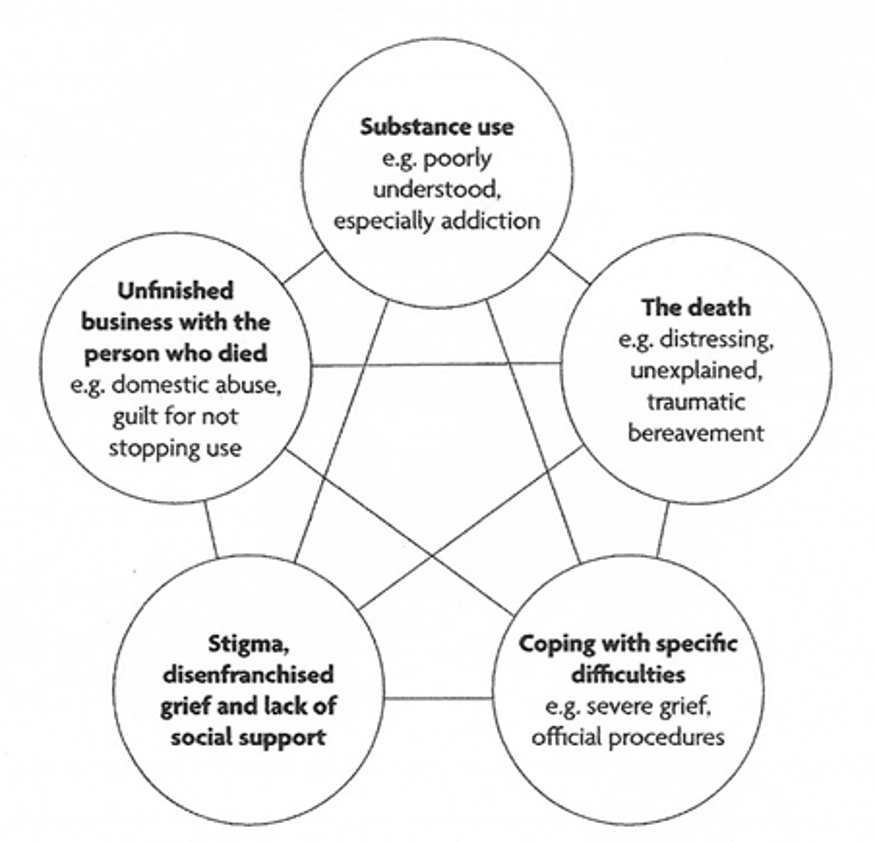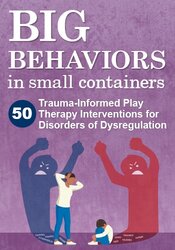Enrol in an online course today for flexible, self-paced learning—no fixed schedule required. Plus, enjoy lifetime access to course materials for convenient revisiting.
Substance-Related Bereavement Counselling 1/2 – A Helpful Framework

Bereavement is the process of adaptation people go through following the loss of someone to whom they are attached, i.e. a loved one, and we have evolved to make this adaptation successfully so do not usually need counselling. However, some deaths are often so difficult that counselling can be needed, even many years after the actual death has occurred. Substance-related deaths are typical of such deaths. Also, they are broadly continuing to increase year on year, making it likely we will encounter clients who have been bereaved this way – whether this is their presenting issue or not.
There has been little literature on how to help these clients until myself and some colleagues wrote the first book on this topic. In this pair of blog posts, I would like to share some of our practical ideas.
Substance-related bereavements are often severe, complex and long-lasting. Therefore, it can help to have a framework for thinking about and making sense of a client’s bereavement to inform your work.
There are five, interconnected, substance-related characteristics that potentially affect bereavement, in addition to the characteristics found in all bereavements:

1 Substance use
Grieving is significantly influenced by the substance(s) used and the associated behaviour: they affected how someone died, and also, often affected bereaved people’s relationship with them before they died. For example, someone dying of long-term health difficulties following many years of alcohol addiction is very different to a young person who unexpectedly died of an overdose whilst experimenting with drugs. Bereaved people often experienced substance use, especially when addictive, as confusing, frustrating and frightening. Therefore, they can often misunderstand or be poorly informed about it, which in turn creates difficulties in grieving.
2 Unfinished business associated with the person who died and their substance use
Substance-related bereavements usually include unfinished business from the relationship with the person before they died, i.e. difficult situations and events associated with substance use that were not satisfactorily resolved and/or deep ambivalence about the person that also remains unresolved. Unfinished business either occurs from before the death, such as living with addictive use and associated behaviour, or may only be apparent after the death, such as not having known about the use or how potentially fatal it was. Guilt and/or blame are common emotions in unfinished business that often seem to be unwarranted, so require specific counselling interventions.
3 The death
The circumstances of substance-related deaths are often distressing, so have greater significance during grieving than in most other bereavements. These deaths happen in many ways: anticipated after a long illness due to substance use, typical of the long-term complications of alcohol or intravenous drug use, or expected after previous overdoses or suicide attempts. Conversely, the death may have been sudden and unexpected, sometimes also horrific, such as other suicide deaths, or a road traffic accident. Other deaths occur far away or after losing contact, so may seem unreal. For others, the circumstances may be no more significant than deaths through other causes.
4 Stigma, disenfranchised grief and lack of social support
Substance-related deaths typically stigmatise the person who died and those who are bereaved, although not everyone experiences stigma. Also, there is often a continuation of stigma from before the death. This negatively affects bereavement and creates disenfranchised grief, that is a loss that is not socially sanctioned, openly acknowledged or publicly mourned, and a subsequent loss of social support at a time it is typically needed.
5 Coping with specific difficulties
These often concern official procedures, such as an autopsy, inquest, court case etc, and potential media intrusion. They can also include difficulties with grieving, such as these bereavements being unexpectedly severe, complex and long-lasting, which in turn impacts everyday life, for instance delaying a return to work.
Each of the above characteristics is a cluster of related experiences. These five characteristics are interconnected and influence each other. They combine to create much of the complexity and severity of these bereavements. This tends to keep bereaved people stuck in grief, inhibits creating a new life without their loved one, and complicates their remembrance of them.
For example, a client who misunderstands addictive substance use is likely to have more unfinished business and find the death harder to understand, addictive use increases their risk of being stigmatised and losing social-support, there is more likelihood of official procedures, and all these combine to produce an unexpectedly severe, complex and long-lasting bereavement.
In part two, I will look at how we can help these bereaved people.

















